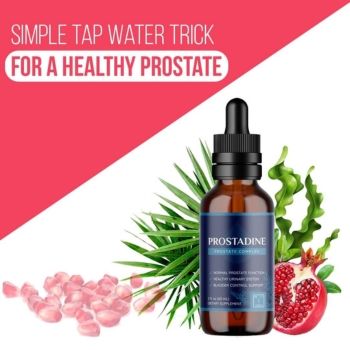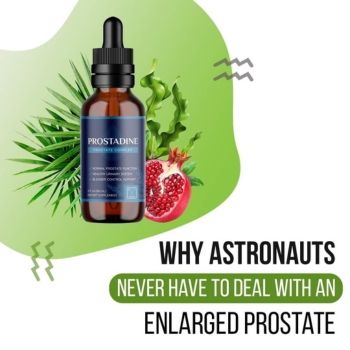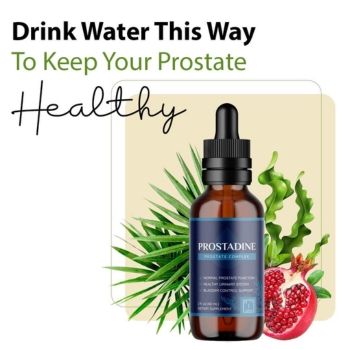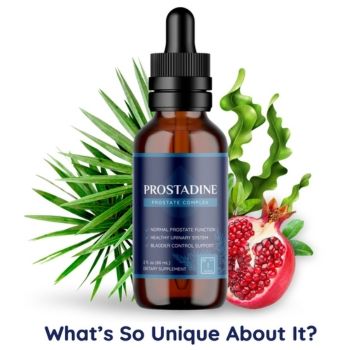For centuries, men have sought natural remedies to maintain strength, virility, and overall well-being. One aspect of male health that often goes unnoticed until issues arise is the prostate. This small gland plays a crucial role in reproductive and urinary functions, yet conditions like prostate enlargement, inflammation, and associated discomfort are increasingly common.
By age 50, over half of men experience some form of prostate enlargement, known as benign prostatic hyperplasia (BPH). Symptoms such as frequent nighttime urination, weak urine flow, and pelvic discomfort can significantly impact quality of life. While modern medicine offers pharmaceutical and surgical options, these often come with side effects and may not address the underlying causes.
Historically, various cultures have turned to natural remedies to support prostate health and alleviate discomfort. Here are some time-tested natural remedies that have been used to promote prostate health:
1. Saw Palmetto – The Prostate Healer of Native America
Saw Palmetto has been a sacred remedy among Native American tribes for centuries, used to treat urinary issues, support male virility, and ease prostate discomfort. Seminole warriors relied on the small, dark berries of the Serenoa repens palm tree, believing it helped maintain strength, stamina, and reproductive health.
Modern science confirms that Saw Palmetto may inhibit the enzyme 5-alpha-reductase, which converts testosterone into dihydrotestosterone (DHT), a hormone associated with prostate enlargement. This inhibition can help reduce inflammation, improve urinary flow, and alleviate symptoms of BPH.
2. Pygeum Bark – The African Secret to Bladder Control
For centuries, African healers have used the bark of the Prunus africana tree to treat urinary problems and prostate disorders. Traditional medicine practitioners utilize bark extract from Prunus africana, the African cherry, to relieve symptoms of BPH, including improved urinary flow and reduced nocturia. 
Pygeum contains phytosterols and anti-inflammatory compounds that may reduce swelling in the prostate, improve urinary flow, and ease discomfort. European doctors began using it in the 1960s, and today, men worldwide take Pygeum supplements to relieve BPH symptoms naturally.
3. Pumpkin Seeds – The Zinc-Packed Prostate Shield
The use of pumpkin seeds for prostate health dates back to ancient Greece. Hippocrates, the father of medicine, recommended them for urinary health, and Aztec healers considered them a sacred food for male vitality.
Pumpkin seeds are rich in zinc, a crucial mineral for prostate function, hormone balance, and sperm production. Studies show that men with low zinc levels have a higher risk of prostate enlargement and inflammation. These seeds also contain plant sterols that help shrink the prostate and improve bladder control. 
Many cultures still consume roasted pumpkin seeds as a daily ritual for maintaining male health, and pumpkin seed oil is often used as a supplement to support the prostate.
4. Stinging Nettle – The Warrior’s Remedy for Prostate Inflammation
Ancient Roman soldiers used stinging nettle not only as food but also as a medicinal herb for joint pain, inflammation, and urinary problems. The Greeks and Egyptians also recognized its benefits, using nettle extracts for bladder health and prostate conditions.
Modern research shows that stinging nettle root may reduce prostate inflammation and inhibit DHT, helping prevent BPH symptoms. Many men use stinging nettle tea or supplements to improve urinary flow and reduce nighttime bathroom trips.
5. Lycopene – The Mediterranean Secret to Prostate Protection
Mediterranean cultures have long celebrated tomatoes, watermelon, and red fruits for their prostate-protective properties. Italian men, known for their high consumption of tomato-based dishes, have lower rates of prostate issues compared to other populations.
The secret? Lycopene, a powerful antioxidant that protects prostate cells from damage and lowers the risk of enlargement. Cooking tomatoes in olive oil (like in traditional Mediterranean sauces) boosts lycopene absorption, making it one of the easiest dietary changes for long-term prostate health.
6. Green Tea – The Ancient Detoxifier for Prostate Wellness
In Ancient China and Japan, green tea was more than just a drink—it was a symbol of longevity and internal cleansing. Samurai warriors consumed it daily for its anti-inflammatory and protective effects, including its ability to combat infections and improve bladder function.
Green tea is loaded with catechins, compounds that reduce prostate inflammation, support hormonal balance, and lower the risk of prostate cancer. Regular green tea consumption has been linked to improved prostate health and urinary function.
7. Turmeric – The Golden Healer of India
For over 4,000 years, turmeric has been a cornerstone of Ayurvedic medicine, used for reducing inflammation and promoting male reproductive health. Hindu healers considered it a spiritual cleanser and a physical detoxifier.
Turmeric’s active compound, curcumin, fights inflammation and oxidative stress, both of which contribute to prostate enlargement and discomfort. Men who consume turmeric-rich foods or supplements often experience reduced prostate swelling and improved urinary flow.
8. Quercetin – The European Remedy for Prostatitis
European folk medicine has long used apples, onions, and leafy greens as remedies for inflammation-related conditions, including prostatitis (inflammation of the prostate). These foods contain quercetin, a potent antioxidant that reduces swelling, pain, and urinary urgency.
Quercetin works particularly well for chronic prostatitis, which often causes pelvic discomfort and urinary difficulties. Many men find that increasing their quercetin intake improves symptoms without relying on medication.
9. Cranberry – The Native American Solution for Urinary Health
Indigenous tribes across North America have long relied on cranberries to support urinary tract health and prevent infections. They would crush and consume the berries to help cleanse the bladder and flush out toxins, a practice that was later adopted by early European settlers.
Cranberries contain proanthocyanidins, which prevent harmful bacteria from sticking to the bladder and prostate, reducing the risk of urinary tract infections (UTIs) and prostatitis (prostate inflammation). Many men suffering from chronic prostatitis find that cranberry supplements or unsweetened cranberry juice help reduce inflammation and improve urinary flow.
10. Castor Oil Packs – The Ancient Circulation Booster
Ancient Egyptians and Ayurvedic healers in India have used castor oil for thousands of years as a natural remedy for inflammation, detoxification, and pain relief. They believed that applying warm castor oil packs to the body helped stimulate circulation, promote healing, and remove stagnant fluids.
Today, men use castor oil packs to improve blood flow to the prostate, reduce inflammation, and ease pelvic discomfort. The warmth of the pack, combined with the anti-inflammatory properties of ricinoleic acid in castor oil, helps to relax muscles around the bladder and prostate, making urination easier and less painful.
Many natural health practitioners recommend placing a warm castor oil pack on the lower abdomen for 30–60 minutes a few times per week to help relieve prostate swelling and discomfort. This method remains a gentle yet effective way to support prostate health naturally.
Exploring Lesser-Known Natural Remedies
While the above remedies are widely recognized, lesser-known herbs and natural substances have also been traditionally used for prostate health and urinary function. Here are a few worth considering:
11. Pollen Extract (Cernilton) – The European Prostate Soother
Used in Sweden and Germany, pollen extract has been shown to reduce inflammation in the prostate, improve urinary flow, and ease symptoms of BPH. It is often recommended for chronic prostatitis due to its anti-inflammatory and immune-supporting properties.
12. Rye Grass Pollen – The Traditional Scandinavian Approach
Rye grass pollen extract, widely used in Scandinavia and Germany, has been studied for its ability to relax the smooth muscles of the bladder and prostate, reducing pressure and discomfort. Many men with BPH take it as a natural alternative to pharmaceuticals.
13. Burdock Root – The Detoxifier from Traditional Chinese Medicine
Burdock root has been used in Traditional Chinese Medicine (TCM) and European folk medicine for removing toxins, reducing swelling, and improving circulation. Some herbalists recommend burdock root tea or tinctures for men with prostate inflammation or sluggish urinary flow.
14. Reishi Mushroom – The Longevity Tonic of the East
Known as “The Mushroom of Immortality” in China and Japan, Reishi mushroom is prized for its immune-boosting, anti-inflammatory, and hormonal-balancing properties. Research suggests that Reishi may help shrink the prostate and reduce BPH symptoms by balancing testosterone and DHT levels.
15. Schisandra Berry – The Adaptogen for Male Energy and Prostate Health
Schisandra, a powerful adaptogenic berry used in Ancient Chinese Medicine, is believed to support male reproductive health, detoxify the liver, and improve hormonal balance. Some herbalists recommend Schisandra for reducing prostate inflammation and increasing energy levels in aging men.
The Timeless Power of Natural Prostate Remedies
Throughout history, men have turned to nature’s pharmacy to maintain prostate health, vitality, and longevity. While modern medicine offers pharmaceutical options, these often come with side effects or fail to address the root causes of prostate problems.
Traditional remedies, on the other hand, have stood the test of time. From the Native American use of Saw Palmetto to the Mediterranean reliance on Lycopene-rich foods, many of these natural solutions have been used for generations to prevent and manage prostate conditions.
But the most powerful approach is not just taking one remedy—it’s combining a holistic lifestyle with these natural solutions. Regular exercise, stress reduction, hydration, and a diet rich in anti-inflammatory foods all play a role in keeping the prostate healthy and functional.
A Future Without Prostate Discomfort
Prostate issues don’t have to be an inevitable part of aging. By learning from ancient traditions, incorporating time-tested remedies, and making proactive lifestyle changes, men can take control of their prostate health naturally. Whether it’s a handful of pumpkin seeds, a cup of green tea, or a warm castor oil pack, small, daily choices can lead to a healthier, more vibrant future—free from discomfort.







